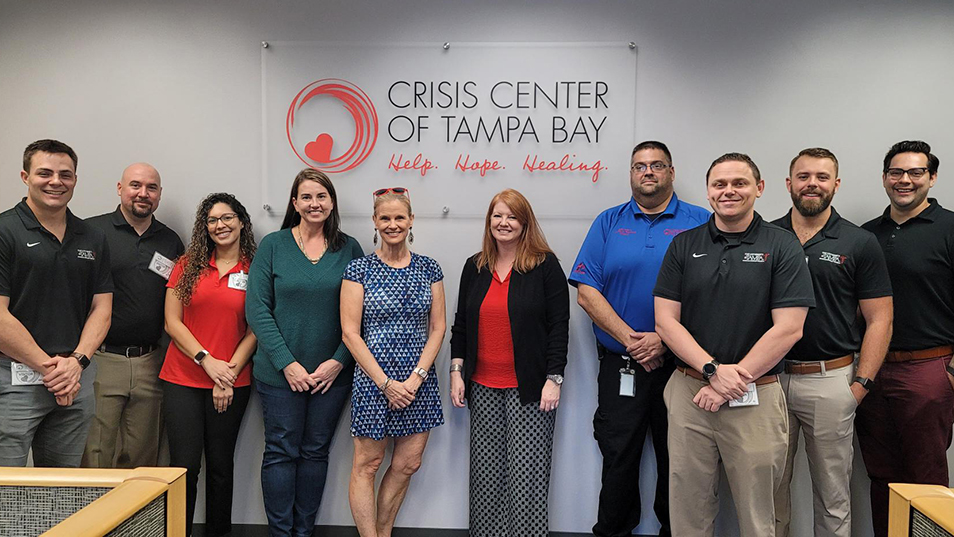Contact us
401 W. Kennedy Blvd.
Tampa, FL 33606-13490
(813) 253-3333
A new community paramedicine training program for the Crisis Center of Tampa Bay was developed by graduate students in the physician assistant medicine (PAM) and instructional design programs at The University of Tampa to further improve access to care. The Crisis Center will use this training program to onboard newly-hired paramedics.

Two UT programs joined forces to help the community. Photo courtesy of Johnna Yealy
More UT News